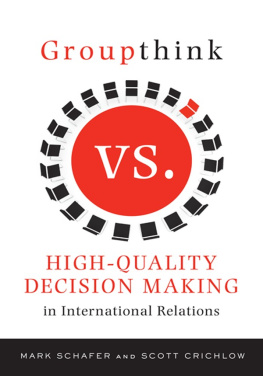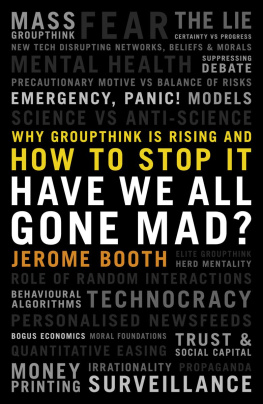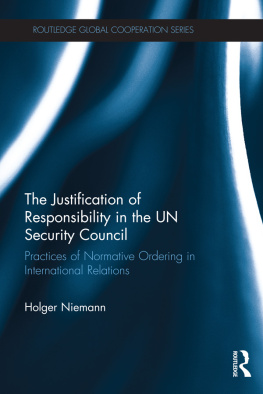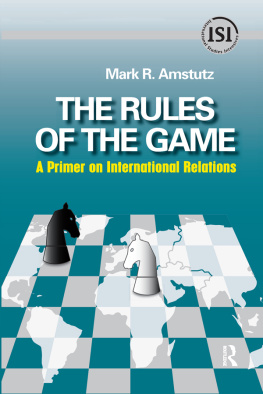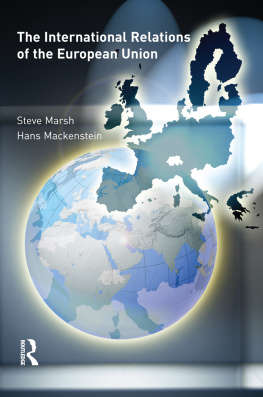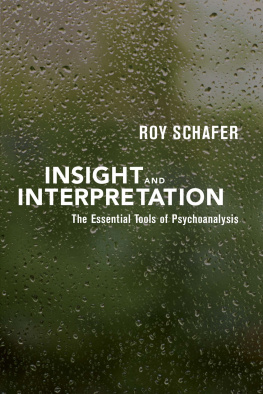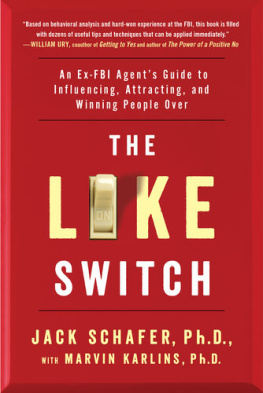Mark Schafer - Groupthink Versus High-Quality Decision Making in International Relations
Here you can read online Mark Schafer - Groupthink Versus High-Quality Decision Making in International Relations full text of the book (entire story) in english for free. Download pdf and epub, get meaning, cover and reviews about this ebook. year: 2010, publisher: Columbia University Press, genre: Politics. Description of the work, (preface) as well as reviews are available. Best literature library LitArk.com created for fans of good reading and offers a wide selection of genres:
Romance novel
Science fiction
Adventure
Detective
Science
History
Home and family
Prose
Art
Politics
Computer
Non-fiction
Religion
Business
Children
Humor
Choose a favorite category and find really read worthwhile books. Enjoy immersion in the world of imagination, feel the emotions of the characters or learn something new for yourself, make an fascinating discovery.
- Book:Groupthink Versus High-Quality Decision Making in International Relations
- Author:
- Publisher:Columbia University Press
- Genre:
- Year:2010
- Rating:5 / 5
- Favourites:Add to favourites
- Your mark:
- 100
- 1
- 2
- 3
- 4
- 5
Groupthink Versus High-Quality Decision Making in International Relations: summary, description and annotation
We offer to read an annotation, description, summary or preface (depends on what the author of the book "Groupthink Versus High-Quality Decision Making in International Relations" wrote himself). If you haven't found the necessary information about the book — write in the comments, we will try to find it.
Mark Schafer: author's other books
Who wrote Groupthink Versus High-Quality Decision Making in International Relations? Find out the surname, the name of the author of the book and a list of all author's works by series.
Groupthink Versus High-Quality Decision Making in International Relations — read online for free the complete book (whole text) full work
Below is the text of the book, divided by pages. System saving the place of the last page read, allows you to conveniently read the book "Groupthink Versus High-Quality Decision Making in International Relations" online for free, without having to search again every time where you left off. Put a bookmark, and you can go to the page where you finished reading at any time.
Font size:
Interval:
Bookmark:
CUP would be pleased to hear about your reading experience with this e-book at .
| A model of foreign-policy decision making |
| A model of foreign-policy decision making |
| Bivariate regression models: Situation variables explaining national-interest outcomes |
| Bivariate regression models: Situation variables explaining level of international conflict |
| Bivariate regression models: Situation variables explaining decision-processing faults |
| Bivariate regression models: Group-structural variables explaining national-interest outcomes |
| Bivariate regression models: Group-structural variables explaining level of international conflict |
| Bivariate regression models: Group-structural variables explaining decision-processing faults |
| Bivariate regression models: Decision-processing variables explaining national-interest outcomes |
| Bivariate regression models: Decision-processing variables explaining level of international conflict |
| Multivariate model: Situation variables explaining national-interest outcomes |
| Multivariate model: Situation variables explaining decision-processing faults |
| Multivariate model explaining national-interest outcomes |
| Multivariate model (with Favorable-Power variable) explaining national-interest outcomes |
| Multivariate model explaining level of international conflict |
| Multivariate model (with Favorable-Power variable) explaining level of international conflict |
| Multivariate model explaining decision-processing faults |
| Multivariate model (with Favorable-Power variable) explaining decision-processing faults |
| Decision-making variables and outcome variables per leader |
| Psychological-trait scores per leader |
| Leaders ranked by trait stability |
| Leaders average trait deviation |
| Bivariate correlations: Traits by decision-making faults |
| Bivariate correlations: Combination variables by decision-making faults |
| Multivariate models explaining group-structural faults |
| Multivariate models explaining decision-processing faults |
| Bivariate correlations: Psychological variables by outcomes |
| Multivariate models explaining national interests |
| Multivariate models explaining level of international conflict |
Font size:
Interval:
Bookmark:
Similar books «Groupthink Versus High-Quality Decision Making in International Relations»
Look at similar books to Groupthink Versus High-Quality Decision Making in International Relations. We have selected literature similar in name and meaning in the hope of providing readers with more options to find new, interesting, not yet read works.
Discussion, reviews of the book Groupthink Versus High-Quality Decision Making in International Relations and just readers' own opinions. Leave your comments, write what you think about the work, its meaning or the main characters. Specify what exactly you liked and what you didn't like, and why you think so.

